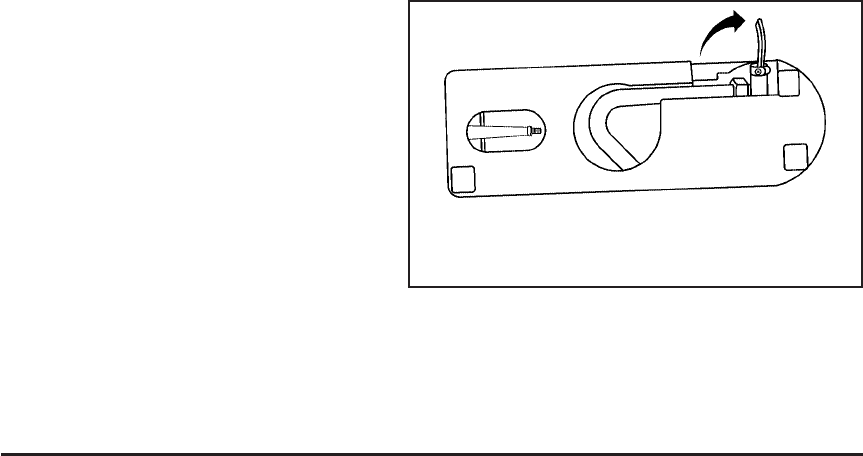
20. Immediately drive the vehicle 5 miles (8 km)
to distribute the sealant evenly in the tire.
Stop at a safe location and check the
tire pressure, refer to Steps 1 through 8 under
Using the Air Compressor without Sealant
next in this section. If the tire pressure
has fallen more then 10 psi (68 kPa), below
the recommended inflation pressure, stop
driving the vehicle. The tire is too damaged for
the sealant to work. See Roadside Assistance
Program on page 413 for more information.
If the tire pressure has not dropped more than
10 psi (68 kPa) from the recommended
inflation pressure, you can inflate the tire back
up to the recommended inflation pressure.
21. Dispose of the sealant canister at a local
retailer or in accordance with any local,
state, and provincial codes and practices.
After using the sealant canister, replace it with
a new canister from a retailer.
22. After temporarily repairing a tire with the
emergency flat tire repair kit, take your
vehicle to an authorized retailer to have the
tire inspected and repaired.
Using the Air Compressor without
Sealant
To use the air compressor by itself to inflate a tire,
do the following:
1. Remove the air compressor accessory plug
from the air compressor.
2. Unlock the air compressor hose from the
sealant canister by pulling up on the lever.
3. Pull the air compressor inflator hose from the
sealant canister.
366


















